
"Wilhelmus van Nassouwe", usually known just as "Wilhelmus", is the national anthem of both the Netherlands and the Kingdom of the Netherlands. It dates back to at least 1572, making it the oldest national anthem in use today, provided that the latter is defined as consisting of both a melody and lyrics. Although "Wilhelmus" was not recognized as the official national anthem until 1932, it has always been popular with parts of the Dutch population and resurfaced on several occasions in the course of Dutch history before gaining its present status. It was also the anthem of the Netherlands Antilles from 1954 to 1964.
Northern Low Saxon is a subgroup of Low Saxon dialects of Low German. As such, it covers a great part of the West Low German-speaking areas of northern Germany, with the exception of the border regions where South Low Saxon is spoken, and Gronings dialect in the Netherlands.
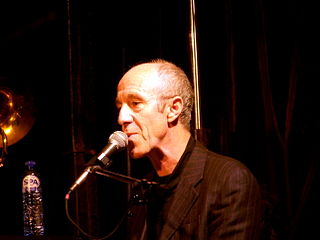
Raymond van het Groenewoud is a Belgian musician. He was born in Schaerbeek, of Dutch descent, and he sings primarily in Dutch. His biggest hits include "Vlaanderen Boven", "Meisjes", "Je Veux de l'Amour", "Zjoske Schone Meid" and "Liefde voor Muziek". He refers to himself as a musician but also a poet, philosopher and clown.
Petjo, also known as Petjoh, Petjok, Pecok, Petjoek is a Dutch-based creole language that originated among the Indos, people of mixed Dutch and Indonesian ancestry in the former Dutch East Indies. The language has influences from Dutch and then depending on the region Javanese, Malay, Sundanese and Betawi. Its speakers presently live mostly in Indonesia and the Netherlands. The language is expected to become gradually extinct by the end of the 21st century, due to Indos' shift toward Indonesian in Indonesia and Dutch in the Netherlands.
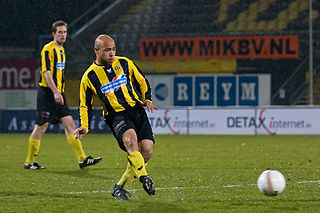
Ryangelo "Angelo" Cijntje is a Curaçaoan former professional footballer, who played most of his career as a right back for BV Veendam.

Cornelis Kist is a Dutch former professional footballer and manager. He played as a striker, and most notably won the European Golden Shoe for the 1978–79 season.

Kinderen voor Kinderen is a Dutch children's choir maintained by public broadcaster BNNVARA.
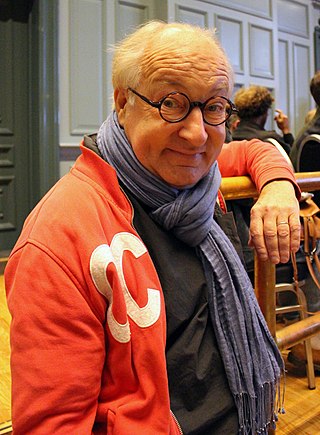
Joseph Jacobus Maria "Youp" van 't Hek is a Dutch comedian, author, columnist, singer-songwriter, playwright, and critic.

Jeroen van der Boom is a Dutch singer who rose to fame in 2007 with his No. 1 hit single Jij bent zo.

Ronald Edwin Tober is a Dutch singer, known for representing the Netherlands in the Eurovision Song Contest 1968 with the song "Morgen".

Liliane Saint-Pierre is a Belgian pop singer. Hailing from Flanders, she sings mostly in Dutch. She competed at Eurovision Song Contest 1987 with the song "Soldiers of Love".

Gerardus Antonius "Gerard" Cox is a Dutch singer, cabaret artist, actor, and director. For fifteen years, he played the lead character of the Dutch sitcom Toen Was Geluk Heel Gewoon.
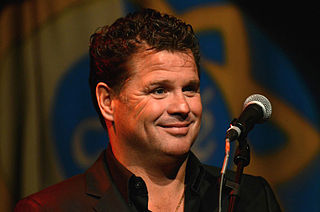
Wolter Kroes is a Dutch singer. He is best known for his hits Ik heb de hele nacht liggen dromen, Niet normaal and his hit single Viva Hollandia that reached #1 in the Dutch Top 40 in 2008.
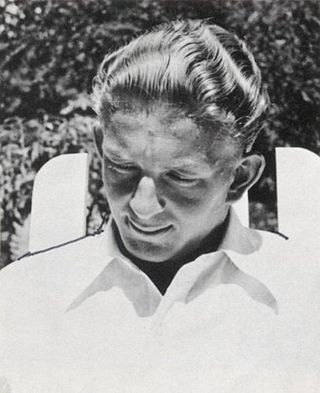
Hans Lodeizen, born Johannes August Frederik Lodeizen, was a Dutch poet. He was the author of one book of poems and a quantity of miscellaneous work. Despite his short life and modest output, his minimalist lyrics, which are generally constituted of short, unrhymed lines without capitals or punctuation, strongly influenced a post-war generation of Dutch poets, including Gerard Reve.

Jacques Vriens is a Dutch children's author and playwright. He is known for his 1999 book Achtste-groepers huilen niet, which was twice adapted into a film. Vriens formerly worked as a schoolteacher and has written for the show Tien torens diep. In 2001 he was appointed to the Order of the Netherlands Lion by Queen Beatrix.
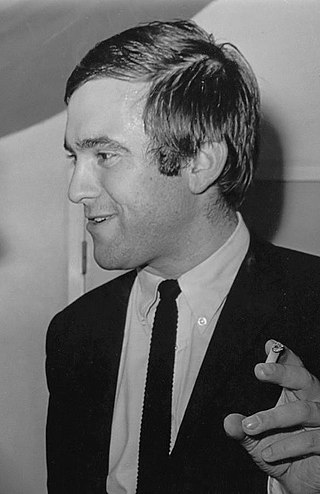
Gerard Stigter, known by the pseudonym K. Schippers, was a Dutch poet, prose writer and art critic. Credited with having introduced the readymade as a poetic form, the whole of his work is dedicated to looking at everyday objects and events in a new way.
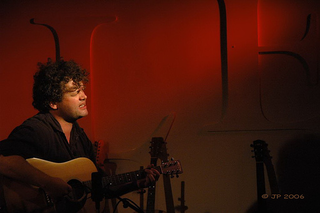
Skik is a Dutch pop group, originating from the town of Erica, Drenthe. The band mainly sings in Drèents, a variation of Low-Saxon, which is traditionally spoken in Drenthe. Skik is Drèents for fun or enjoyment.
Hans Renders is a professor of history and biography theory at the University of Groningen. Since 2004, he is also the head of the university's "Biography Institute".

Vivienne Linette van den Assem is a Dutch actress and presenter.
The song Egidius waer bestu bleven is an early rondeau from Dutch literature and is a famous Middle Dutch song.
















